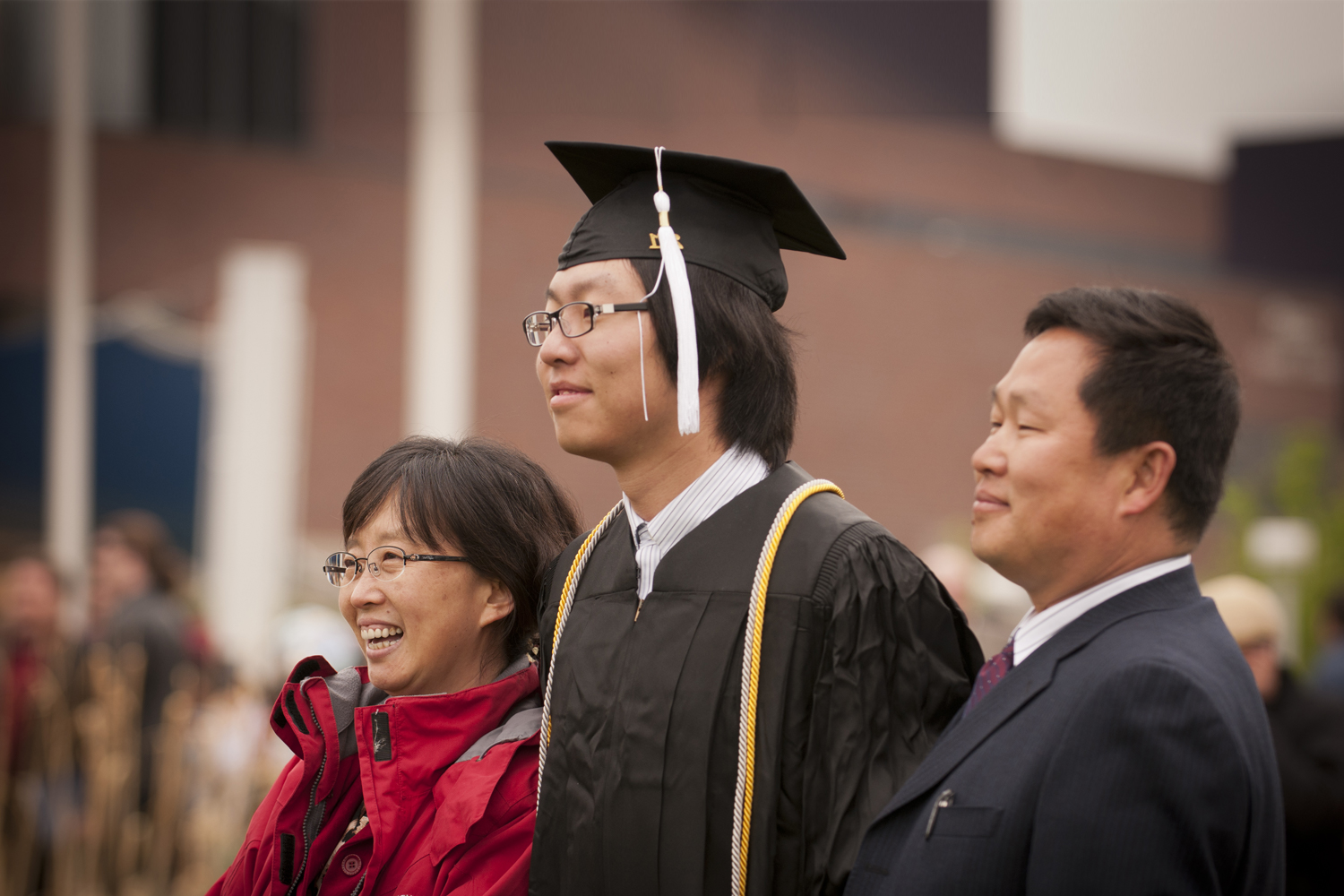Teaching & Learning at International College Beijing
Robert Rostermundt, Mathematics Instructor

Robert Rostermandt - Interview
TEACHING AT ICB
Robert Rostermundt – Mathematics Instructor
TELL US A BIT ABOUT YOUR BACKGROUND AND WHY YOU JOINED THE CU DENVER ICB PROGRAM:
I grew up in Denver and for most of my life I liked to spend my free time playing in the mountains: skiing, hiking, and backpacking. I was fairly good in mathematics but didn’t take much interest in academics during middle school and high school.
After high school I attended CU Boulder for my undergraduate “studies.” In fact, I still had not found much interest in academics and preferred to still spend my time in the mountains. This is probably why I chose to major in Physical Geography instead of business (as my parents had hoped). Yes, my major at CU Boulder had nothing to do with math. It was during this time that I became very interested in rock climbing and kayaking and so I started working as an instructor for the CU Outdoor Program. This was my first experience teaching and I found I really enjoyed the interaction with my students.
After receiving my undergraduate degree, I continued to guide outdoor trips in the summers, and decided to take some math courses. I had always been good at math and had been considering becoming a high school math teacher. One of my professors suggested I go to graduate school in mathematics.
I spent the next five+ years completing my PhD and at the sane time working as a whitewater river guide in the summers. Following graduation, I accepted an assistant professor position at Western State College for several years.
On an autumn trip to the Grand Canyon, I had an accident and seriously broke my right leg. After a helicopter evacuation, a month in the hospital, and then four months of rest and recovery, I knew I could no longer keep living the same outdoor lifestyle.
It was at this time that I learned about the position at ICB. I jumped on the opportunity and have been here teaching at ICB since January 2011.
WHAT DO YOU THINK ABOUT THE CU DENVER ICB PROGRAM?
Teaching math at ICB is very rewarding. I hope to help my students learn to appreciate the beauty of math and to learn how to think carefully about solving problems.
WHAT IS YOUR EXPECTATION OF YOUR STUDENTS?
My hope for my students is that they can find something they are truly passionate about for their future jobs. Even if it doesn’t involve math, hopefully they will have learned to appreciate math as an important and challenging field of study. I have a former student who is now at University of California-Davis who is studying for her PhD in Economics. She is inspirational because she has a well-defined vision for her future and the ability to achieve her goals. I always enjoy meeting with her in Beijing to hear about her progress. Those are the best moments about teaching. I am always happy to hear about the experiences of my former students.
WHAT’S THE DIFFERENCE BETWEEN AMERICAN AND CHINESE STUDENTS?
The main difference between the Chinese students and American students is that Chinese students are most interested in GPA above all else, whereas American students are less concerned with GPA as they realize that graduate schools look at many other factors besides GPA. This leads to a level of anxiety that can get in the way of learning. The best way to learn is to make mistakes! But sometimes that means lower grades. That is a reality in learning. American students are more willing to take risks and try something new or challenging even if they know they might not be successful the first time.
Yiying Liu - Reflection
LEARNING AT ICB
Yiying Liu – ICB Student
TELL US A BIT ABOUT YOUR CLASSROOM LEARNING EXPERIENCES AT ICB:
I spent my first two-year college life in ICB on the Beijing campus. Now, I further my studies on the Denver campus at the University of Colorado Denver. I am a former student of Professor Robert. When I took his class, I knew little about him, especially his abundant life experience. But, I know he has always been really nice and patient with his students.
Professor Robert has always been responsible and has had good teaching methods. He would always separate the difficult mathematical material into several small parts and then explain them to us step by step. Sometimes, we still felt puzzled after his first explanation. When this happened, he would always try to use some other ways to explain it again and again, until we understood the problem.
DID YOU EVER FEEL CHALLENGED BY YOUR STUDIES; IF SO, HOW DID YOUR INSTRUCTOR HELP YOU?
He always spent his time in the office because he wanted to make sure we could find him, when we had problems. He did not really focus on scores of our homework and exams, but he seriously cared about our attitudes towards studying. He always encouraged us to figure out the exact meanings of concepts and deeply understand the relationships between different parts of materials. He always smiled to us, and when we answered questions in class, no matter right or wrong, he would give us positive feedback. I think it was his encouragement that helped me to conquer the fear of mathematics and do well in class.
WHAT HAVE YOU LEARNED ABOUT FOCUSING ON A GOAL AND PLANNING FOR SUCCESS?
To be honest, that is all I knew about Professor Robert before this interview. After knowing more about his experience, I really admire him. First, he committed to his interests. As he said, he chose his major in Physical Geography instead of business as his parents had hoped because of his own interest. Nowadays, more and more students do not know what are they interested in, so when they choose their majors, they just choose the most popular one or follow their parents’ advice. Lacking passion, they cannot pay attention to the courses and feel tired. Getting bad grades, they start to blame their parents for choosing bad majors for them. I think, studying is not easy, so interest is so important –that gives us power to keep going. Also, committing to whatever we like is more meaningful than getting a diploma.
Second, I admire Professor Robert because he had enough courage to change. He learned Physical Geography in college, became an instructor for the CU Outdoor Program, worked in construction, finished the PhD in mathematics, guided outdoor trips, and became an assistant Professor at Western State College in Gunnison. Now, he teaches at ICB. I believe changes are beneficial for people, especially for our youth. If we never change, we do not know whether we have more talents. If we never change, we do not know whether we can do better in other careers. If we never change, we have no chance to meet different kinds of people. If we never change, we have no chance to broaden our horizons.
Change helps us to have a thorough understanding of ourselves and enjoy more vivacious lives. We are young, which is our advantage! It gives us enough time to find helpful ways to correct our mistakes, which happens in the process of change. In this case, why do we not try to make some changes?
I found a lot of inspiration, both in my studies and daily life –thanks again, Professor Robert!
By Yiying Liu
LEARN MORE
UPDATES
International College Beijing
-

Welcoming the Year of the Snake at CU Denver
Jan 29, 2025CU Denver students, faculty, and staff join in celebrating the Year of the Snake with a festive event.Full story -

Spring Semester Kickoff at CU Denver
Jan 21, 2025ICB students are welcomed to Denver and to campus for the Spring 2025 semester.Full story -

-

Year-Round Events Enjoyed By ICB Students
Aug 31, 2023Throughout 2023, ICB students are continuing to join in the fun of indoor and outdoor events hosted by the Office of International Affairs (OIA) and CU Denver. In the spring, two hundred thirty students, staff, faculty, and friends recognized the Lunar New Year at an event presented by OIA, the Asian Students Association (ASA), and the Intercultural Club Beijing. The Club’s members act as consultants for International College Beijing (ICB), both for American CU Denver students going to Beijing on study abroad programs and Chinese students coming to CU Denver.... read moreFull story





